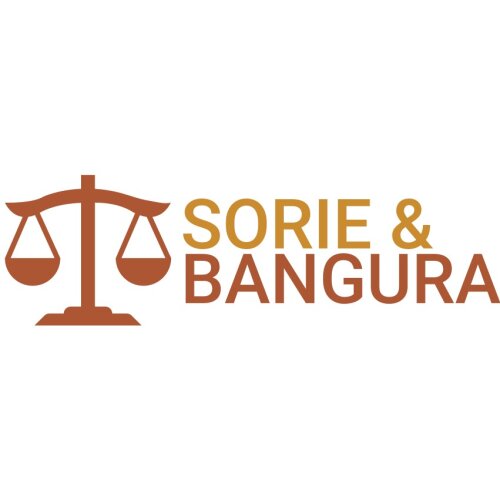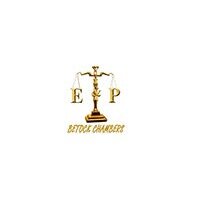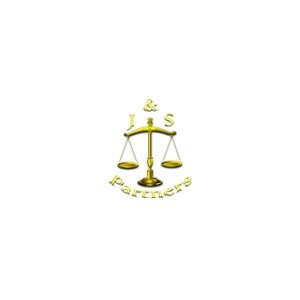Best Real Estate Lawyers in Freetown
Share your needs with us, get contacted by law firms.
Free. Takes 2 min.
Free Guide to Hiring a Real Estate Lawyer
List of the best lawyers in Freetown, Sierra Leone
About Real Estate Law in Freetown, Sierra Leone
Freetown, the capital city of Sierra Leone, is a hub of real estate activity. From residential apartments to commercial properties and land transactions, the real estate landscape offers diverse opportunities. With the city's rapid growth and urban development, understanding real estate law is crucial for navigating property transactions safely and effectively. Real estate law in Freetown covers property buying, selling, leasing, zoning regulations, and land use. Local legal guidelines govern these activities to ensure legal conformity and protect the rights of all parties involved.
Why You May Need a Lawyer
Engaging a lawyer for real estate transactions in Freetown is prudent for several reasons:
- Property Transactions: Buying or selling property involves complex documentation and legal requirements that a lawyer can help you navigate to avoid pitfalls.
- Zoning and Land Use: Understanding zoning laws and permissible land uses can prevent disputes and ensure compliance with local regulations.
- Title Disputes: A lawyer can help resolve disputes related to property titles, which are not uncommon in Freetown.
- Leasing Agreements: Drafting or reviewing lease agreements with the help of a lawyer can ensure that your interests are protected.
- Development Projects: Legal assistance is crucial for developers dealing with construction regulations, permits, and compliance issues.
- Litigation: In case of disputes or breaches of contract, a lawyer can represent your interests in court.
Local Laws Overview
Key legal aspects of real estate in Freetown include:
- Property Ownership: The legal framework for property ownership includes statutory law, local customs, and customary law, especially in rural areas.
- Land Registration Act: Requires land registration to establish legality and ownership, which is essential for legal transactions.
- Zoning Laws: These laws dictate how land and buildings can be used in specific areas, guiding both residential and commercial development.
- Stamp Duty and Taxes: Real estate transactions may be subject to stamp duties and local taxes, which lawyers can help you understand and navigate.
- Environmental Regulations: Environmental compliance is necessary, especially for commercial developments that may impact local ecosystems.
Frequently Asked Questions
What are the common types of property ownership in Freetown?
The common types include freehold, leasehold, and customary land tenure. Each has different legal implications and requirements.
How do I verify a property's validity before purchasing?
A lawyer can conduct a thorough title search to verify the property’s ownership and ensure there are no legal encumbrances.
What is the process of registering a property after purchase?
The process involves submitting the necessary documents to the Lands Registry to record the ownership change officially.
Are there restrictions on foreign ownership of property?
Yes, there are regulations concerning land ownership by non-citizens, often requiring special permissions or agreements.
How are property taxes calculated in Freetown?
Property taxes are based on the property’s valuation and the applicable local tax rates, which can be clarified by the Local Council.
What should be included in a lease agreement?
A comprehensive lease agreement should cover rent, terms of tenure, maintenance responsibilities, and conditions for termination.
How do zoning laws affect new constructions?
Zoning laws dictate the types of structures you can build in a given area, impacting design, usage, and compliance with local planning.
Can I convert agricultural land to residential use?
Conversion is possible but requires permission from local authorities and compliance with zoning regulations.
What is involved in resolving a property boundary dispute?
A lawyer might help by conducting a survey, reviewing legal documentation, and possibly mediating between parties involved.
How can I protect myself against real estate fraud?
Engaging a competent lawyer for due diligence, conducting title searches, and verifying seller identities can reduce fraud risks.
Additional Resources
Several resources can be helpful for legal advice in real estate:
- Ministry of Lands, Housing, and Environment: Offers guidelines and regulations related to land and housing.
- Sierra Leone Legal Aid Board: Provides legal assistance to those who might not afford private legal services.
- Sierra Leone Bar Association: Can help you find experienced real estate lawyers.
- Local Council Offices: Provide insights into regional zoning laws and property assessment details.
- Real Estate Associations: Engaging with local real estate associations can offer insights and experience-sharing platforms.
Next Steps
If you require legal assistance for a real estate issue:
- Consult with a certified real estate lawyer who understands the local laws and regulations.
- Prepare all relevant property documents and information for your lawyer to review.
- Consider reaching out to local real estate bodies for referrals or advice.
- Ensure you fully understand the legal advice given and ask questions for clarification.
- Stay informed about changes in real estate laws by attending seminars or joining real estate forums.
Engaging professional legal advice is indispensable for smooth and legally compliant real estate transactions in Freetown, Sierra Leone.
Lawzana helps you find the best lawyers and law firms in Freetown through a curated and pre-screened list of qualified legal professionals. Our platform offers rankings and detailed profiles of attorneys and law firms, allowing you to compare based on practice areas, including Real Estate, experience, and client feedback.
Each profile includes a description of the firm's areas of practice, client reviews, team members and partners, year of establishment, spoken languages, office locations, contact information, social media presence, and any published articles or resources. Most firms on our platform speak English and are experienced in both local and international legal matters.
Get a quote from top-rated law firms in Freetown, Sierra Leone — quickly, securely, and without unnecessary hassle.
Disclaimer:
The information provided on this page is for general informational purposes only and does not constitute legal advice. While we strive to ensure the accuracy and relevance of the content, legal information may change over time, and interpretations of the law can vary. You should always consult with a qualified legal professional for advice specific to your situation.
We disclaim all liability for actions taken or not taken based on the content of this page. If you believe any information is incorrect or outdated, please contact us, and we will review and update it where appropriate.
Browse real estate law firms by service in Freetown, Sierra Leone
Freetown, Sierra Leone Attorneys in related practice areas.













